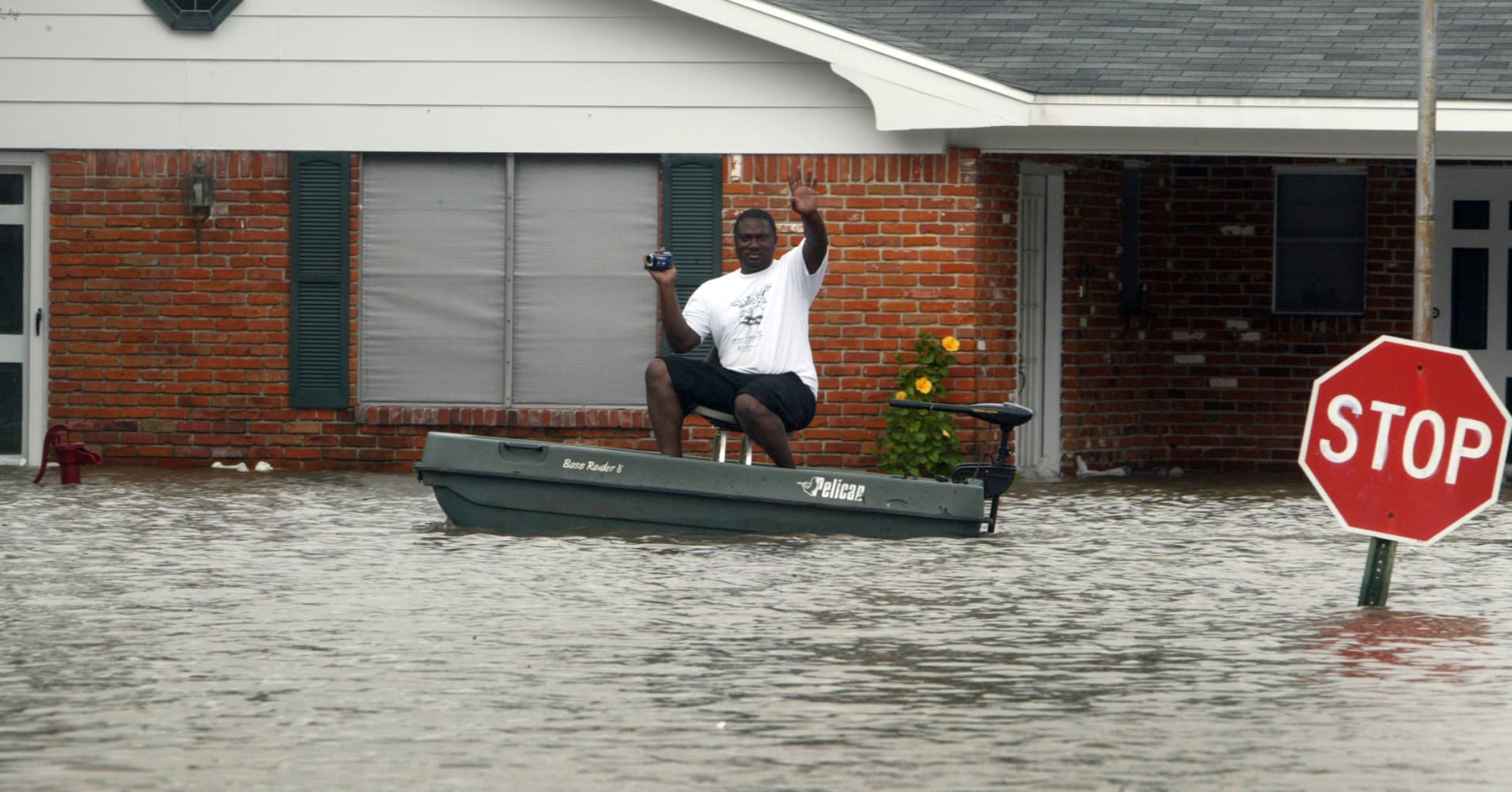Hits: 23

NEW ROADS, La. — At a small church meeting house this month in a Louisiana farm town, a tiny community was making a very big decision. Residents were fed up with increasingly intense and frequent flooding, so they are moving to higher ground. Together.
“It’s quite clear that we’re having more disasters. At the same time, I think that we are seeing less and less willingness to fund these wholesale recoveries. And consequently, we had to start doing things that are smarter,” said Pat Forbes, executive director of the Louisiana Office of Community Development. “One of the easiest, smartest things you can do is get people out of harm’s way.”
At the gathering in the church meeting house, Forbes sought to assure the several dozen homeowners involved that they would not be affected by floods in the new area. Not only that, they could get larger, more energy-efficient homes. The homes are expected to be completed by the fall of 2020.
“It’s going to be a model,” Forbes told the gathering.
The program will buy out each homeowner, but since these damaged homes have so little value now, homeowners will also get forgivable loans, up to $200,000, to buy into the new community. For each year they live in their new home, they get one-fifth of the loan forgiven. In five years, the home is theirs, debt free. The cost: roughly $8 million. An additional $4 million will be used to demolish the old neighborhood and restore it to wetlands.
Curnell Jackson, who has lived in her Pecan Acres home since it was built nearly 50 years ago, was eager to hear the details. She raised her children there and is now raising her granddaughter in the barely habitable home. In the recent floods, water rose halfway up her kitchen walls, and now those walls are covered in newspaper where the drywall was removed. The floors have been ripped up, and she can no longer use gas to heat her stove due to damage in the walls. Flood insurance is far too expensive for anyone in this neighborhood.
“You’re losing everything. You don’t have time to pick up or, you know, anything. And you just got to go back and start all over again. I mean, it’s just — it’s just miserable,” said Jackson.
In the past, the federal government has given flooded homeowners money to relocate, but this is one of the first plans to move an entire community to higher ground. And it could be a model for the future.
“When we get done with this, we and everyone else will know more about how to do this and more about the mistakes to avoid than we know right now,” said Forbes. “One thing we’re starting to figure out is that what’s extremely important to having successful neighborhoods in the future and resilient neighborhoods, is when people are close to each other and they’re looking out for each other.”
The state of Louisiana is doing something similar with Isle de Jean Charles, an island sinking into the Gulf of Mexico, due to rising sea levels. In early January, the state announced it paid close to $12 million for a 515-acre property about 40 miles north of the island. Forbes is also leading that project.
For Jackson, Pecan Acres will still be the same tight-knit community, even a few miles down the road.
“We all in it together. And, you know, I’m not just happy for myself, but I’m happy for everybody else. ‘Cause we done been through a lot,” she said, standing in front of her flood-damaged home. “I’m ready to go.”
Be the first to comment